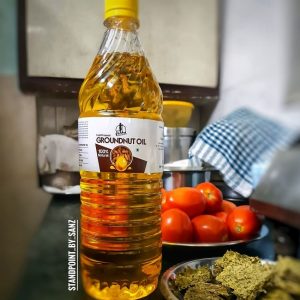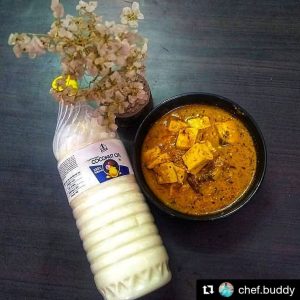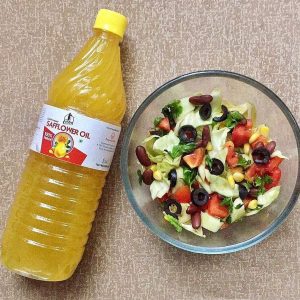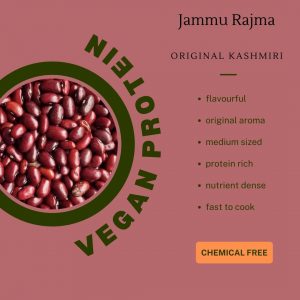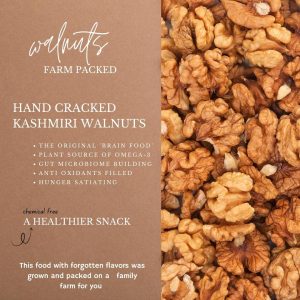Shop
Groundnut Oil
₹ 420.00 – ₹ 1,990.00What are cold pressed oils?
The oils that you use for cooking everything are extracted from seeds, fruits or vegetables and even nuts. Cold pressing is the method of oil extraction from oilseeds which may include sesame seed, sunflower seeds, canola, coconut or olive without really using heat to extract as that may degrade the oil’s flavour and nutritional quality. Cold pressing method is the process involving crushing seeds or nuts and forcing out the oil through pressure.
In olden times, a long cylindrical contraption known as ‘ghani’ was used to extract oil from oilseeds. Ghani was a mortar and pestle device made of stone or wood that used a perambulating animal to extract oil under pressure from oil-bearing seeds. This was the simplest method for cold pressing oils out of a seed as it didn’t involve the generation of too much heat.
What is available at most stores & supermarkets ?
If you are careful enough you will see different kinds of labels on your oil packaging :
“Losorb”
“Lite”
“Blanched”
“Refined”
What these words really mean is “our oil has gone through tons of chemical processes and is stripped of all it’s natural nutrients!”
What is Oil Refining?
Refining is a process of purification of oils. In this process, oils are robbed of naturally occurring gums, proteins, phospholipids, fine seed particles etc. This makes the oil “light/losorb”. Oils are also neutralized (acidity balanced!), bleached (stripped of color) and deodorized (devoid of it’s natural aroma). And to achieve all these the oil is heated at high temperatures and is treated with chemicals etc.
In a nutshell, modern refined cooking oils provide nothing but pure empty calories (devoid of all nutrients but fats!)
Here’s what Oil Refining looks like :
Why do oil companies sell Refined Oils ?
•Yield
•Shelf Life
•Price
•Modern cooking style of “deep frying”
Why you should move to cold pressed oils :
• Nutritionally Rich: Be it traditional lakdi ghana/kachchi ghani/chekku ennai or commercially prepared extra virgin oils (made using temperature controlled expeller pressing method), cold pressed oils retain most of proteins, vitamins, phosholipids, antioxidants, lecithin etc. And obtaining these essential nutrients from an all natural source is a much wiser and holistic choice than getting them from multivitamin pills.
• Chemical Free: During refining, various chemicals are used like Hexane, Sodium Hydroxide, Sodium Bicarbonate (baking soda), Bleaching Agents etc. And on top of that chemicals like Propyl Gallate, BHA, BHT are introduced as preservatives! Now not all of these are exactly toxic or carcinogenic , but if you are someone who is conscious about living organically and staying away from chemicals, you should consider switching back to cold pressed!
• Forgotten Flavors: Virgin oils, their flavor and aroma, compliments all Indian foods and the spices well. Get those forgotten flavors back into your food.
• Environmental Impact: You lower your carbon foot-print when you are consuming less processed things and saving the environment too.
• Way of Life: Cooking with cold pressed oils has been a tradition not only in India.
Few things to remember :
• Storage:
Cold pressed oils have a limited shelf life (max 6 months). You can always maximize the shelf life by storing it in the cold (think refrigeration) and dark (think non transparent bottles) places, although it is always advisable to use them up as soon as possible to reap their full nutritional benefits.
• Using it up :
Every time you open a bottle of any cold pressed cooking oil – use within 45days.
Sesame oil (white)
₹ 450.00 – ₹ 2,200.00What are cold pressed oils?
The oils that you use for cooking everything are extracted from seeds, fruits or vegetables and even nuts. Cold pressing is the method of oil extraction from oilseeds which may include sesame seed, sunflower seeds, canola, coconut or olive without really using heat to extract as that may degrade the oil’s flavour and nutritional quality. Cold pressing method is the process involving crushing seeds or nuts and forcing out the oil through pressure.
In olden times, a long cylindrical contraption known as ‘ghani’ was used to extract oil from oilseeds. Ghani was a mortar and pestle device made of stone or wood that used a perambulating animal to extract oil under pressure from oil-bearing seeds. This was the simplest method for cold pressing oils out of a seed as it didn’t involve the generation of too much heat.
What is available at most stores & supermarkets ?
If you are careful enough you will see different kinds of labels on your oil packaging :
“Losorb”
“Lite”
“Blanched”
“Refined”
What these words really mean is “our oil has gone through tons of chemical processes and is stripped of all it’s natural nutrients!”
What is Oil Refining?
Refining is a process of purification of oils. In this process, oils are robbed of naturally occurring gums, proteins, phospholipids, fine seed particles etc. This makes the oil “light/losorb”. Oils are also neutralized (acidity balanced!), bleached (stripped of color) and deodorized (devoid of it’s natural aroma). And to achieve all these the oil is heated at high temperatures and is treated with chemicals etc.
In a nutshell, modern refined cooking oils provide nothing but pure empty calories (devoid of all nutrients but fats!)
Here’s what Oil Refining looks like :
Why do oil companies sell Refined Oils ?
•Yield
•Shelf Life
•Price
•Modern cooking style of “deep frying”
Why you should move to cold pressed oils :
• Nutritionally Rich: Be it traditional lakdi ghana/kachchi ghani/chekku ennai or commercially prepared extra virgin oils (made using temperature controlled expeller pressing method), cold pressed oils retain most of proteins, vitamins, phosholipids, antioxidants, lecithin etc. And obtaining these essential nutrients from an all natural source is a much wiser and holistic choice than getting them from multivitamin pills.
• Chemical Free: During refining, various chemicals are used like Hexane, Sodium Hydroxide, Sodium Bicarbonate (baking soda), Bleaching Agents etc. And on top of that chemicals like Propyl Gallate, BHA, BHT are introduced as preservatives! Now not all of these are exactly toxic or carcinogenic , but if you are someone who is conscious about living organically and staying away from chemicals, you should consider switching back to cold pressed!
• Forgotten Flavors: Virgin oils, their flavor and aroma, compliments all Indian foods and the spices well. Get those forgotten flavors back into your food.
• Environmental Impact: You lower your carbon foot-print when you are consuming less processed things and saving the environment too.
• Way of Life: Cooking with cold pressed oils has been a tradition not only in India.
Few things to remember :
• Storage:
Cold pressed oils have a limited shelf life (max 6 months). You can always maximize the shelf life by storing it in the cold (think refrigeration) and dark (think non transparent bottles) places, although it is always advisable to use them up as soon as possible to reap their full nutritional benefits.
• Using it up :
Every time you open a bottle of any cold pressed cooking oil – use within 45days.
Mustard Oil
₹ 375.00 – ₹ 1,800.00What are cold pressed oils?
The oils that you use for cooking everything are extracted from seeds, fruits or vegetables and even nuts. Cold pressing is the method of oil extraction from oilseeds which may include sesame seed, sunflower seeds, canola, coconut or olive without really using heat to extract as that may degrade the oil’s flavour and nutritional quality. Cold pressing method is the process involving crushing seeds or nuts and forcing out the oil through pressure.
In olden times, a long cylindrical contraption known as ‘ghani’ was used to extract oil from oilseeds. Ghani was a mortar and pestle device made of stone or wood that used a perambulating animal to extract oil under pressure from oil-bearing seeds. This was the simplest method for cold pressing oils out of a seed as it didn’t involve the generation of too much heat.
What is available at most stores & supermarkets ?
If you are careful enough you will see different kinds of labels on your oil packaging :
“Losorb”
“Lite”
“Blanched”
“Refined”
What these words really mean is “our oil has gone through tons of chemical processes and is stripped of all it’s natural nutrients!”
What is Oil Refining?
Refining is a process of purification of oils. In this process, oils are robbed of naturally occurring gums, proteins, phospholipids, fine seed particles etc. This makes the oil “light/losorb”. Oils are also neutralized (acidity balanced!), bleached (stripped of color) and deodorized (devoid of it’s natural aroma). And to achieve all these the oil is heated at high temperatures and is treated with chemicals etc.
In a nutshell, modern refined cooking oils provide nothing but pure empty calories (devoid of all nutrients but fats!)
Here’s what Oil Refining looks like :
Why do oil companies sell Refined Oils ?
•Yield
•Shelf Life
•Price
•Modern cooking style of “deep frying”
Why you should move to cold pressed oils :
• Nutritionally Rich: Be it traditional lakdi ghana/kachchi ghani/chekku ennai or commercially prepared extra virgin oils (made using temperature controlled expeller pressing method), cold pressed oils retain most of proteins, vitamins, phosholipids, antioxidants, lecithin etc. And obtaining these essential nutrients from an all natural source is a much wiser and holistic choice than getting them from multivitamin pills.
• Chemical Free: During refining, various chemicals are used like Hexane, Sodium Hydroxide, Sodium Bicarbonate (baking soda), Bleaching Agents etc. And on top of that chemicals like Propyl Gallate, BHA, BHT are introduced as preservatives! Now not all of these are exactly toxic or carcinogenic , but if you are someone who is conscious about living organically and staying away from chemicals, you should consider switching back to cold pressed!
• Forgotten Flavors: Virgin oils, their flavor and aroma, compliments all Indian foods and the spices well. Get those forgotten flavors back into your food.
• Environmental Impact: You lower your carbon foot-print when you are consuming less processed things and saving the environment too.
• Way of Life: Cooking with cold pressed oils has been a tradition not only in India.
Few things to remember :
• Storage:
Cold pressed oils have a limited shelf life (max 6 months). You can always maximize the shelf life by storing it in the cold (think refrigeration) and dark (think non transparent bottles) places, although it is always advisable to use them up as soon as possible to reap their full nutritional benefits.
• Using it up :
Every time you open a bottle of any cold pressed cooking oil – use within 45days.
Coconut Oil
₹ 450.00What are cold pressed oils?
The oils that you use for cooking everything are extracted from seeds, fruits or vegetables and even nuts. Cold pressing is the method of oil extraction from oilseeds which may include sesame seed, sunflower seeds, canola, coconut or olive without really using heat to extract as that may degrade the oil’s flavour and nutritional quality. Cold pressing method is the process involving crushing seeds or nuts and forcing out the oil through pressure.
In olden times, a long cylindrical contraption known as ‘ghani’ was used to extract oil from oilseeds. Ghani was a mortar and pestle device made of stone or wood that used a perambulating animal to extract oil under pressure from oil-bearing seeds. This was the simplest method for cold pressing oils out of a seed as it didn’t involve the generation of too much heat.
What is available at most stores & supermarkets ?
If you are careful enough you will see different kinds of labels on your oil packaging :
“Losorb”
“Lite”
“Blanched”
“Refined”
What these words really mean is “our oil has gone through tons of chemical processes and is stripped of all it’s natural nutrients!”
What is Oil Refining?
Refining is a process of purification of oils. In this process, oils are robbed of naturally occurring gums, proteins, phospholipids, fine seed particles etc. This makes the oil “light/losorb”. Oils are also neutralized (acidity balanced!), bleached (stripped of color) and deodorized (devoid of it’s natural aroma). And to achieve all these the oil is heated at high temperatures and is treated with chemicals etc.
In a nutshell, modern refined cooking oils provide nothing but pure empty calories (devoid of all nutrients but fats!)
Here’s what Oil Refining looks like :
Why do oil companies sell Refined Oils ?
•Yield
•Shelf Life
•Price
•Modern cooking style of “deep frying”
Why you should move to cold pressed oils :
• Nutritionally Rich: Be it traditional lakdi ghana/kachchi ghani/chekku ennai or commercially prepared extra virgin oils (made using temperature controlled expeller pressing method), cold pressed oils retain most of proteins, vitamins, phosholipids, antioxidants, lecithin etc. And obtaining these essential nutrients from an all natural source is a much wiser and holistic choice than getting them from multivitamin pills.
• Chemical Free: During refining, various chemicals are used like Hexane, Sodium Hydroxide, Sodium Bicarbonate (baking soda), Bleaching Agents etc. And on top of that chemicals like Propyl Gallate, BHA, BHT are introduced as preservatives! Now not all of these are exactly toxic or carcinogenic , but if you are someone who is conscious about living organically and staying away from chemicals, you should consider switching back to cold pressed!
• Forgotten Flavors: Virgin oils, their flavor and aroma, compliments all Indian foods and the spices well. Get those forgotten flavors back into your food.
• Environmental Impact: You lower your carbon foot-print when you are consuming less processed things and saving the environment too.
• Way of Life: Cooking with cold pressed oils has been a tradition not only in India.
Few things to remember :
• Storage:
Cold pressed oils have a limited shelf life (max 6 months). You can always maximize the shelf life by storing it in the cold (think refrigeration) and dark (think non transparent bottles) places, although it is always advisable to use them up as soon as possible to reap their full nutritional benefits.
• Using it up :
Every time you open a bottle of any cold pressed cooking oil – use within 45days.
Raisins – Black
₹ 255.00 – ₹ 450.00- Sun Dried
- No Dipping Oil used
- No Sulphur used
- No Potassium Carbonate used
- Tested for 200+ Pesticides – 100% Food Safe
- Made from Climate Resilient grapes – which means higher Secondary Metabolites alkaloids, polyphenols including flavonoids, and terpenoids
- Sourced from Nashik Farmer
- of which sugar : 59.19g
Jaggery powder
₹ 100.00Our organic jaggery is made by a marginal farmer, without using Fertilizers, Pesticides or Hormones. This jaggery is a rich source of Iron, calcium, magnesium, essential amino acid, minerals and vital vitamins.
Jaggery can be made from numerous sources like date palm, the sap of coconut and more, but jaggery made from sugarcane juice is most preferred by people. Ancient Ayurveda also strongly recommend jaggery as a tasty and healthy alternative to refined sugar.
Jaggery is 30-40% water, 40-60% sucrose, 15-25% inverted sugar, 0.30% calcium, 8.5-10 mg iron, 05/100 mg phosphorus, 0.10/100 mg, protein and 14/100mg vitamin B. Although it has the same calorific value as that of sugar, it is a better substitute for the white refined sugar as it a a genuinely Food which is medicine.
The colour of the jaggery also plays an important role in identifying purity. Ideally the colour of the jaggery should be dark brown. The yellowish colour may indicate chemical treatment.
Benefits of using jaggery :- Generates heat inside the body
- Boosts immunity within the body
- Prevents constipation and enhances the production of digestive enzymes
- Helps in preventing joint pain
- Detoxifies the body
- Rich in iron contents, prevents anemia
- Boosts body metabolism
Gehu khapli (flour)
₹ 190.00 – ₹ 900.00Himalayan pink salt
₹ 110.00 – ₹ 500.00- High mineral content, all natural, organic
- The darker the color the more minerals that are in the salt
- Contains 84 trace minerals – including Calcium, Magnesium, Potassium, Copper and Iron
- Made without additives
- Clean, fresh taste with no bitterness
- Seasons meats, grilled vegetables, a variety of salads, soups & stews or use when baking
- Naturally enhances flavour of food
- Ideal for cooking, salt rubs and drinks
Safflower Oil
₹ 475.00What are cold pressed oils?
The oils that you use for cooking everything are extracted from seeds, fruits or vegetables and even nuts. Cold pressing is the method of oil extraction from oilseeds which may include sesame seed, sunflower seeds, canola, coconut or olive without really using heat to extract as that may degrade the oil’s flavour and nutritional quality. Cold pressing method is the process involving crushing seeds or nuts and forcing out the oil through pressure.
In olden times, a long cylindrical contraption known as ‘ghani’ was used to extract oil from oilseeds. Ghani was a mortar and pestle device made of stone or wood that used a perambulating animal to extract oil under pressure from oil-bearing seeds. This was the simplest method for cold pressing oils out of a seed as it didn’t involve the generation of too much heat.
What is available at most stores & supermarkets ?
If you are careful enough you will see different kinds of labels on your oil packaging :
“Losorb”
“Lite”
“Blanched”
“Refined”
What these words really mean is “our oil has gone through tons of chemical processes and is stripped of all it’s natural nutrients!”
What is Oil Refining?
Refining is a process of purification of oils. In this process, oils are robbed of naturally occurring gums, proteins, phospholipids, fine seed particles etc. This makes the oil “light/losorb”. Oils are also neutralized (acidity balanced!), bleached (stripped of color) and deodorized (devoid of it’s natural aroma). And to achieve all these the oil is heated at high temperatures and is treated with chemicals etc.
In a nutshell, modern refined cooking oils provide nothing but pure empty calories (devoid of all nutrients but fats!)
Here’s what Oil Refining looks like :
Why do oil companies sell Refined Oils ?
•Yield
•Shelf Life
•Price
•Modern cooking style of “deep frying”
Why you should move to cold pressed oils :
• Nutritionally Rich: Be it traditional lakdi ghana/kachchi ghani/chekku ennai or commercially prepared extra virgin oils (made using temperature controlled expeller pressing method), cold pressed oils retain most of proteins, vitamins, phosholipids, antioxidants, lecithin etc. And obtaining these essential nutrients from an all natural source is a much wiser and holistic choice than getting them from multivitamin pills.
• Chemical Free: During refining, various chemicals are used like Hexane, Sodium Hydroxide, Sodium Bicarbonate (baking soda), Bleaching Agents etc. And on top of that chemicals like Propyl Gallate, BHA, BHT are introduced as preservatives! Now not all of these are exactly toxic or carcinogenic , but if you are someone who is conscious about living organically and staying away from chemicals, you should consider switching back to cold pressed!
• Forgotten Flavors: Virgin oils, their flavor and aroma, compliments all Indian foods and the spices well. Get those forgotten flavors back into your food.
• Environmental Impact: You lower your carbon foot-print when you are consuming less processed things and saving the environment too.
• Way of Life: Cooking with cold pressed oils has been a tradition not only in India.
Few things to remember :
• Storage:
Cold pressed oils have a limited shelf life (max 6 months). You can always maximize the shelf life by storing it in the cold (think refrigeration) and dark (think non transparent bottles) places, although it is always advisable to use them up as soon as possible to reap their full nutritional benefits.
• Using it up :
Every time you open a bottle of any cold pressed cooking oil – use within 45days.
Turmeric powder
₹ 150.00 – ₹ 275.00Rajma (jammu)
₹ 150.00 – ₹ 250.00- Isoflavones. A class of antioxidants present in high amounts in Rajma, isoflavones are categorized as phytoestrogens due to their similarity to the female sex hormone, estrogen.
- Anthocyanins. This family of colorful antioxidants occurs in the skin of kidney beans. The color of red kidney beans is mainly due to an anthocyanin known as pelargonidin.
- Phytohaemagglutinin. This toxic protein exists in high amounts in raw kidney beans, especially red varieties. It can be eliminated through cooking.
- Phytic acid. Found in all edible seeds, phytic acid (phytate) impairs your absorption of various minerals, such as iron and zinc. It can be reduced by soaking, sprouting, or fermenting the beans.
- Starch blockers. A class of lectins, also known as alpha-amylase inhibitors, starch blockers impair or delay the absorption of carbs from your digestive tract but are inactivated by cooking.
Raisins – golden
₹ 275.00 – ₹ 475.00- Sun Dried
- No Dipping Oil used
- No Sulphur used
- No Potassium Carbonate used
- Tested for 200+ Pesticides – 100% Food Safe
- Made from Climate Resilient grapes – which means higher Secondary Metabolites alkaloids, polyphenols including flavonoids, and terpenoids
- Sourced from Nashik farmer
- of which sugar : 59.19g
Kashmiri red chilli powder
₹ 150.00- Mild Hot
- Quality chilli powder to make your food hot and colourful
- Can be used in all types of cooking for that chilli flavour and a distinct red colour
- It is added to marinade for marinating and to frying onions along with chopped tomatoes while preparing curries.
- Source of antioxidants
- Rich source of iron, potassium, manganese and magnesium
- Excellent source of Vitamin A & C
Virgin Coconut Oil
₹ 175.00 – ₹ 500.00- A crystal clear virgin coconut oil, snow white when frozen.
- High Lauric Acid content of upto 50%
- No harmful Trans Fats.
- Colour : Natural colour – crystal clear oil.
- Aroma : A subtle sweet coconut aroma, not the harsh coconut smell of ordinary coconut oil.
- Taste : A mild, pleasant coconut taste.
- Crystal clear virgin coconut oil.
- High Lauric acid content upto 50%
- A light pleasant sweet coconut aroma and taste.
- No fermentation in the process, therefore there are no micro organisms that develop during fermentation.
- No heat or chemicals used.
- No refining, No Hydrogenation. Thus there are no Trans Fats produced in the process.
- A natural, raw virgin coconut oil, full of all the naturally occurring coconut benefits.
- A food / nutritional supplement.
- Anti aging skin care.
- Hair care.
- Oil pulling.
- For cosmetics, soap and shampoo making.
Premium hing (crystals)
₹ 175.00Benefits of using Hing
1. Aid to stomach problems It is most commonly used as a digestive aid apart from cooking, it is considered as one of the best remedies to balance vata dosha. It is also used as a remedy for flatulence, constipation and digestion. It can be taken with butter milk to help cleanse the digestive system. 2.Antimicrobial It is known to be one of the best home remedies for asthma and bronchitis. In many parts of the world like Afganistan, China, Egypt, Saudi Arabia and Malaysia it is taken to relieve symptoms of whooping cough, asthma and ulcer. 3.Anti-coagulant It has the properties to control cholesterol and blood pressure level and fat consumption too. The gum contains a relaxant compound which improves the blood flow and reduces arterial blood pressure, thus having a positive effect on blood pressure and cardiovascular health. It also has phenolic acid, ferulic acid and tannins which regulate the blood sugar level. Other benefits of Hing include remedy for intestinal gas, bloating and cramps during menstrual cycle and mucous discharge.Akhrot (walnut)
₹ 850.00- Rich in antioxidants
- Super plant source of omega-3s
- May decrease inflammation
- Promotes a healthy gut
- Supports weight control
- Helps control diabetes
- May Help Lower Blood Pressure
